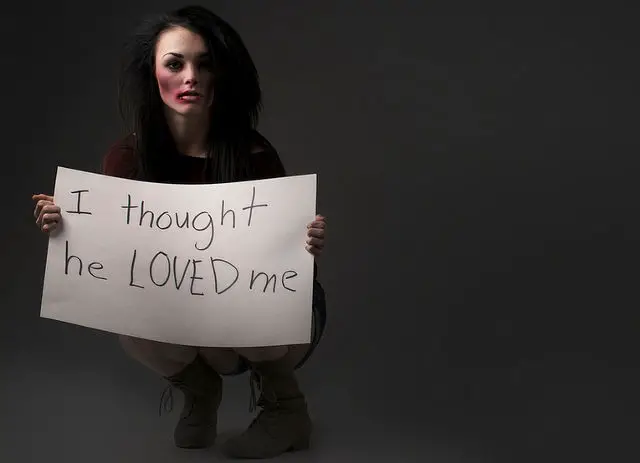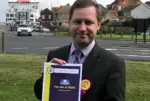Reported incidents of domestic abuse have risen on the Island by 10.5 per cent — but one charity calls it the ‘very tip of the iceberg’.
In the latest report published by the Community Safety Partnership (CSP), 1,583 incidents were flagged with domestic abuse aspects — crimes including threatening, controlling or coercive behaviour, violence or abuse of any type.
35.3 per cent committed by spouse or partner
Marked as a priority by the CSP to tackle, 35.3 per cent of reported abuse was committed by a spouse or partner with a further third carried out by former partners.
Figures also show that one in four abusive episodes were fuelled by alcohol.
Superintendent Sarah Jackson, District Commander for the Island, urged those affected to report their incidents.
She said:
“When abuse is in a domestic environment we want to signpost victims to YOU Trust, a commissioned service here on the Island.”
YOU Trust, which has provided council-funded services since last year, trains communities to help provide victims with support as well as adding security measures to houses so victims can stay in their home.
23 ‘domestic abuse champions’
Hampshire Constabulary officers have also had mandatory training — with 23 Island officers volunteering to be ‘domestic abuse champions’, so victims first point of contact with the police is a good one.
Supt Jackson said:
“The officers will have a greater understanding of issues people face and they will do what they can to support the victim.
“The victim needs the right help to report the case.”
Low charge rate
A troubling statistic to emerge from the strategic assessment showed only 6.1 per cent of abusers were charged — with 69.7 per cent of cases falling through where either the victim did not support or withdrew support from the prosecution as well as evidential difficulties that led to no prosecution.
But Supt Jackson said all the police can do is collect evidence.
She said:
“The reality is we have different roles — our job is to present the case to the CPS and help support the victim, the CPS have to do their bit as well.
“We send advice back and forth, finding the gaps in a case, and help get a case to a place where a successful prosecution can happen but sometimes that sadly isn’t possible.”
Gwinnett: The ‘very tip of the iceberg’
However, Fiona Gwinnett, chief executive of WightDASH, formerly the Isle of Wight Women’s Refuge, said there is real misunderstanding of domestic abuse and the number of incidents reported are the ‘very tip of the iceberg’.
Fiona said,
“Our focus now is on recovery.
“All too often the perception is that once the relationships is over, everything will be OK.
“That is absolutely not the case for many victims. We have worked with women in their 60s and 70s who have been out of abusive relationships for decades but are still affected by it — it is not just the point of impact that is important, we need to fund proper recovery work.”
Recovery work is vital
WightDASH, a charity who previously provided council-funded services, offer women recovery toolkits to help cope with sexual violence, domestic abuse and adverse childhood experiences.
Fiona said:
“Without recovery work, it leaves victims open to re-victimisation, either by returning to the relationship or embarking on a new one — with no improvement, we are putting people in a holding zone until their next abusive relationship.
“There are good provisions but they are not good enough. There is always more to be done and until every professional and every agency accepts this, we are really just sticking plasters over things.”
This article is from the BBC’s LDRS (Local Democracy Reporter Service) scheme, which OnTheWight is taking part in. Some alterations and additions may be been made by OnTheWight. Ed





